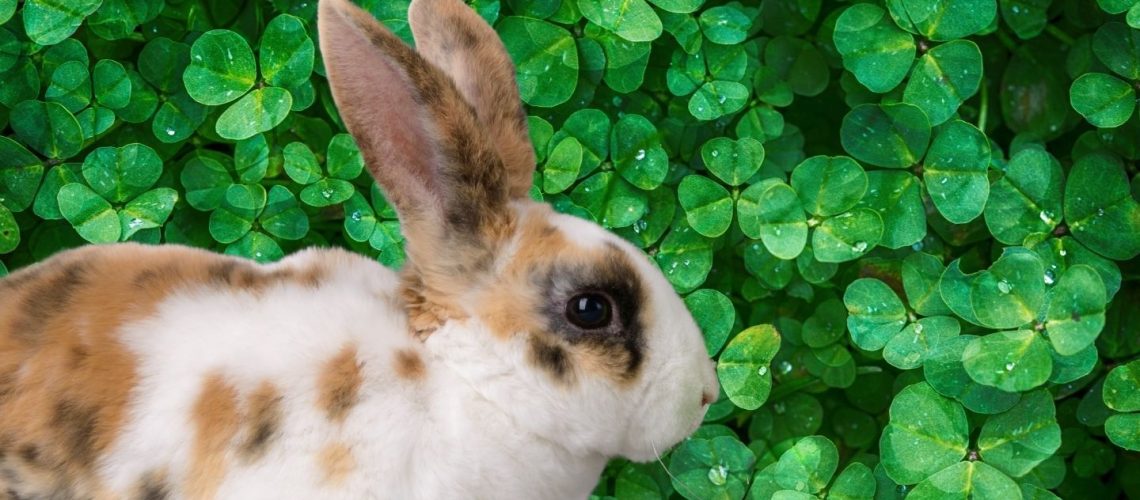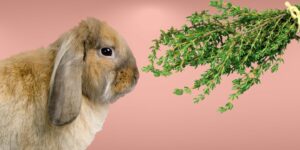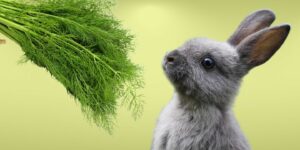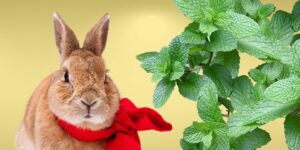Rabbits are small, herbivorous mammals that require a balanced diet to maintain optimum health. One common plant that rabbits may consume is clover, a member of the pea family that is often found in lawns and fields. Clover offers nutritional benefits for rabbits, including vitamins A and C, as well as calcium and fiber. Let's examine whether rabbits can safely eat clover, as well as how to best incorporate it into their diet.
Clover as a food source for rabbits
Clover can be a nutritious food source for rabbits, offering several health benefits.
Nutritional benefits of clover
Clover is rich in vitamins A and C, which are essential for maintaining a healthy immune system in rabbits. It also provides calcium, which helps to promote strong bones and teeth. Additionally, it has a high fiber content that aids in proper digestion.
Types of clover rabbits can eat
Rabbits can eat various types of clover, including red clover, white clover, and alsike clover. Each type offers slightly different nutritional benefits, so ensuring a mixture can be beneficial for your rabbit.
Clover in the wild vs. cultivated clover
Both wild and cultivated clover can be safe for rabbits to eat. However, it is important to be aware of potential pesticide exposure in cultivated clover, as this could be harmful to rabbits.
Health benefits of clover for rabbits
Feeding rabbits clover can provide numerous health benefits.
Vitamin A and C
Vitamins A and C are essential for maintaining a healthy immune system, and clover is a good source of both.
Calcium
Calcium is essential for maintaining strong bones and teeth in rabbits, and clover offers a good amount of this essential mineral.
Fiber
A high-fiber diet is vital for proper digestion in rabbits. Clover is naturally high in fiber, making it a great addition to their diet.
Precautions when feeding clover to rabbits
While clover is safe for rabbits to eat, there are some precautions to consider when incorporating it into their diet.
Gradual introduction
When introducing clover to a rabbit's diet, it is important to do so gradually to avoid causing digestive upset. Start with small amounts and slowly increase the quantity over time.
Avoiding pesticide exposure
Rabbits should only be fed pesticide-free clover, as pesticide residue could be harmful to their health.
Monitoring for allergic reactions
While uncommon, some rabbits may have an allergic reaction to clover. Monitor your rabbit for any signs of discomfort or allergic reactions after feeding them clover.
Alternatives to clover for a rabbit's diet
If you're looking for additional foods to include in your rabbit's diet, consider these alternatives:
Other leafy greens
Rabbits can eat various leafy greens, including kale, lettuce, spinach, and arugula.
Flowers and herbs
Consider offering your rabbit edible flowers and herbs like dandelions, chamomile, mint, and parsley.
Fruits and vegetables
Rabbits also enjoy small amounts of fruits and vegetables, such as apple slices, bell peppers, and carrots.
How to grow your own clover for rabbits
Growing clover for your rabbit can be an easy and rewarding process.
Choosing a suitable location
When selecting a location to grow clover, opt for a sunny spot with well-drained soil.
Planting and caring for clover plants
Plant clover seeds during the spring or fall, and water the area regularly to ensure the plants remain healthy.
Harvesting and storing clover
Once your clover plants mature, harvest the leaves, and store them in a cool, dry place for later use.
Frequently Asked Questions
Can rabbits eat clover flowers?
Yes, rabbits can eat clover flowers, as they provide additional nutritional benefits.
Can rabbits eat clover hay?
Yes, clover hay offers additional fiber and can be a valuable component of a rabbit's diet.
Do wild rabbits eat clover?
Yes, wild rabbits are known to consume clover as part of their natural diet.
Conclusion
Clover can be a safe and nutritious addition to a rabbit's diet, provided it is pesticide-free and introduced gradually. As with all foods, moderation is key to maintaining your rabbit's health. Incorporating a variety of healthy food options, including clover, ensures your rabbit receives a balanced diet while encouraging natural foraging behaviors.











